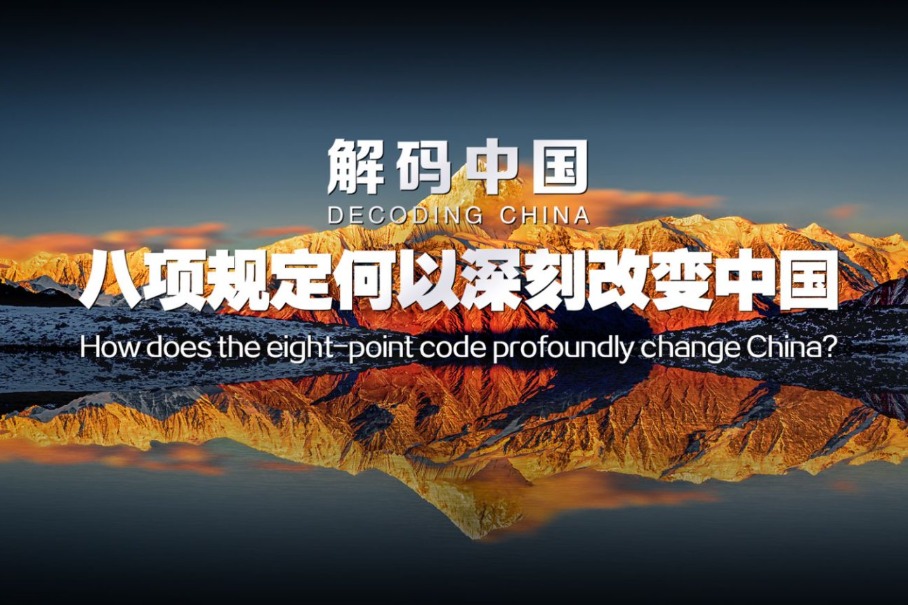EU tariffs on Chinese EVs trigger backlash
Industry leaders, govts fear protectionist move may cripple fair global competition

BERLIN/BRUSSELS — The European Commission revealed on Wednesday a list of protectionist duties it would levy on imports of battery electric vehicles from China, sparking opposition and concerns from governments and businesses across Europe.
The provisional duties envisaged by the commission on the imports of EVs from China would range from 17.4 to 38.1 percent.
"The European Commission's punitive tariffs hit German companies and their top products," German Transport Minister Volker Wissing said on X. "Cars must become cheaper through more competition, open markets and significantly better business conditions in the EU, not through trade war and market isolation."
Hungarian Minister for National Economy Marton Nagy condemned the move as overly protectionist. He said in a statement that "protectionism is not the solution", and the commission's decision would unfairly discriminate against Chinese manufacturers and disrupt market competition, which had been vital for the European Union.
The high additional tariffs would further deviate from the goals of global cooperation and could quickly have a negative effect in the event of a trade conflict. The potential fallout originating from these measures may be greater than their potential benefits for the European — as well as the German — automotive industry, Hildegard Mueller, president of the German Association of the Automotive Industry, told Xinhua.
"The fact is that we need China to solve global problems, which applies, in particular, to successfully tackling the climate crises," Mueller said, stressing China's role in the transition toward electromobility and the digitalization of the global automotive industry.
BMW CEO Oliver Zipse criticized the commission's plan as "the wrong way to go", stating it would damage European companies and interests. "Protectionism risks starting a spiral: Tariffs lead to new tariffs, to isolation rather than cooperation," he said.
Other major German carmakers also voiced their support for fair competition and free world trade, German media outlet Handelsblatt reported. Europe's largest vehicle maker Volkswagen rejected the planned tariffs, saying, "The negative effects of this decision outweigh any benefits for the European and especially the German automotive industry."
Important market
China is an important market for Germany's carmakers, and industry figures have lined up to warn that new tariffs could trigger retaliatory measures.
"European drivers are crying out for affordable EVs, and lower-priced cars will be critical to achieving the (green) transition as planned," Will Roberts, head of automotive research at Rho Motion, said in a statement. "Having said that, Chinese manufacturers should be able to absorb some of these lower tariff levels into their padded profit margins."
The "true test" from the EU's decision will be "whether Beijing will retaliate in kind, or come to an amicable solution", he said. "Europe's manufacturers still rely on the Chinese market, so declining profits from the East would only slow their ability to transition effectively."
Sweden's Minister for International Development Cooperation and Foreign Trade Johan Forssell said the Swedish government wants to know whether the European Commission has exhausted other options besides tariffs.
"We are generally skeptical of tariffs. Someone has to pay them, and in this case, it will sooner or later be the consumers," he was quoted by the Swedish TT News Agency as saying.
In response to the EU announcement, carmaker Stellantis also expressed its position by advocating free and fair competition and opposing measures that lead to "the fragmentation of the world". It said that through its affordable EVs and cooperation with Chinese EV maker Leapmotor, it has confidence in competing with Chinese products that have price advantages.
Hrvoje Prpic, president of the Croatian Electric Vehicle Drivers Association, said the high tariffs would fail to help the European industry keep up the pace of Chinese carmakers, and the consumers in Europe would front the increased cost.
Pavol Antalic, chairman of the Slovak-Chinese Joint Business Council, said, "Businesses must be open, and tariffs are not beneficial for business exchanges."
Non-EU member Norway said it will not follow the bloc to increase tariffs on Chinese EVs, Finance Minister Trygve Slagsvold Vedum announced on Wednesday. "Introducing tariffs on Chinese cars is neither relevant nor desirable for this government," Vedum was quoted by Norwegian national broadcaster NRK as saying.
Xing Yi in London contributed to this story.
Agencies - Xinhua
Today's Top News
- Namibian FM highlights China's role in progress
- Policy effort to bolster growth bears fruit
- Xizang's first guide dog helps his owner break barriers
- Thai court suspends PM over leaked call
- Xi stresses building unified national market, promoting marine economy's high-quality development
- A tale of two intellectual paradigms






























